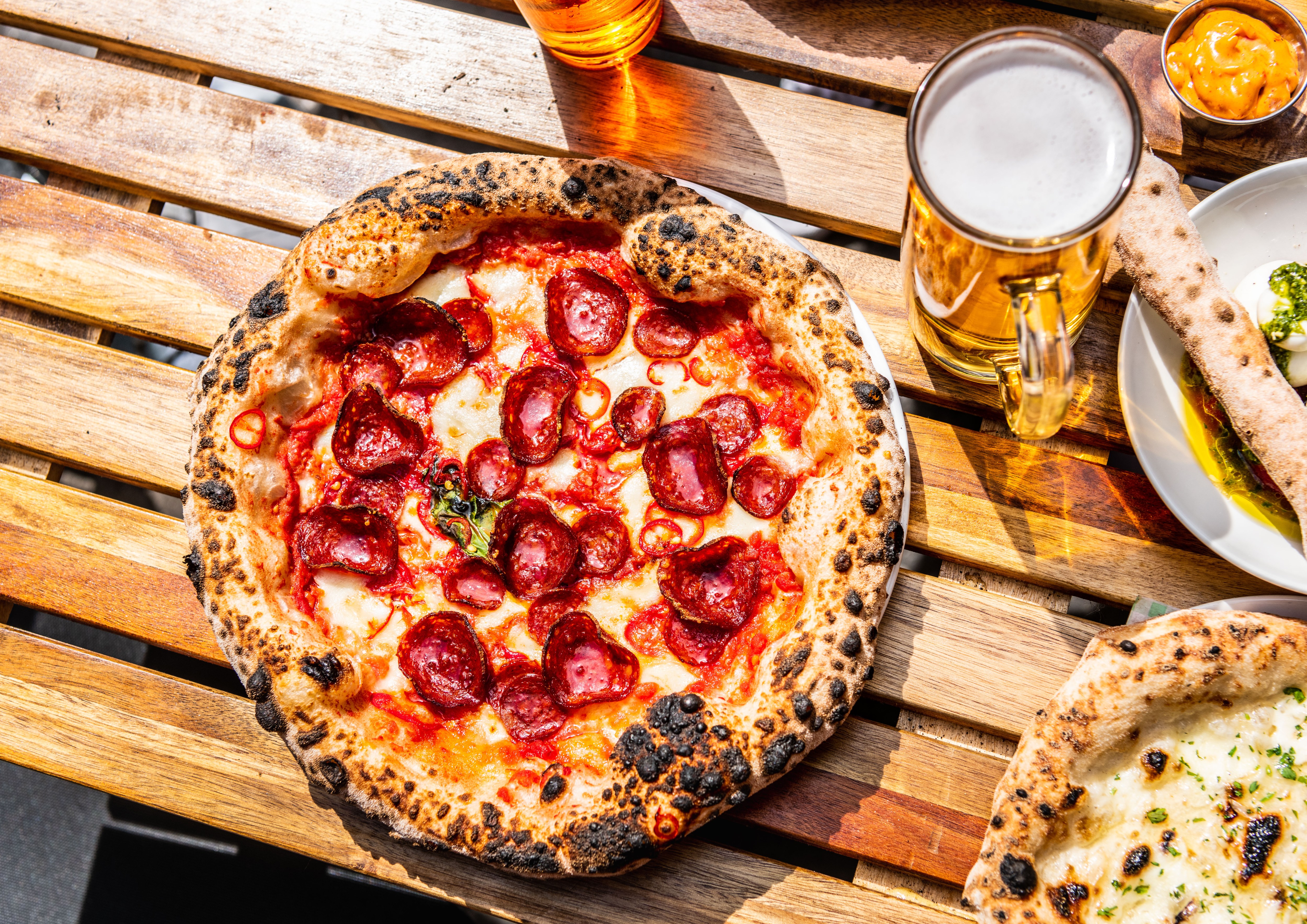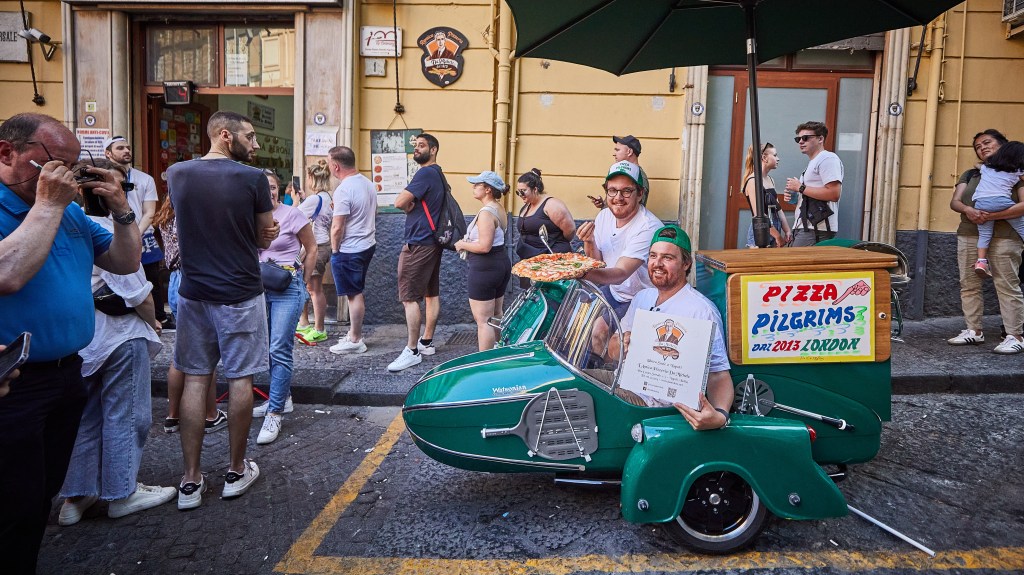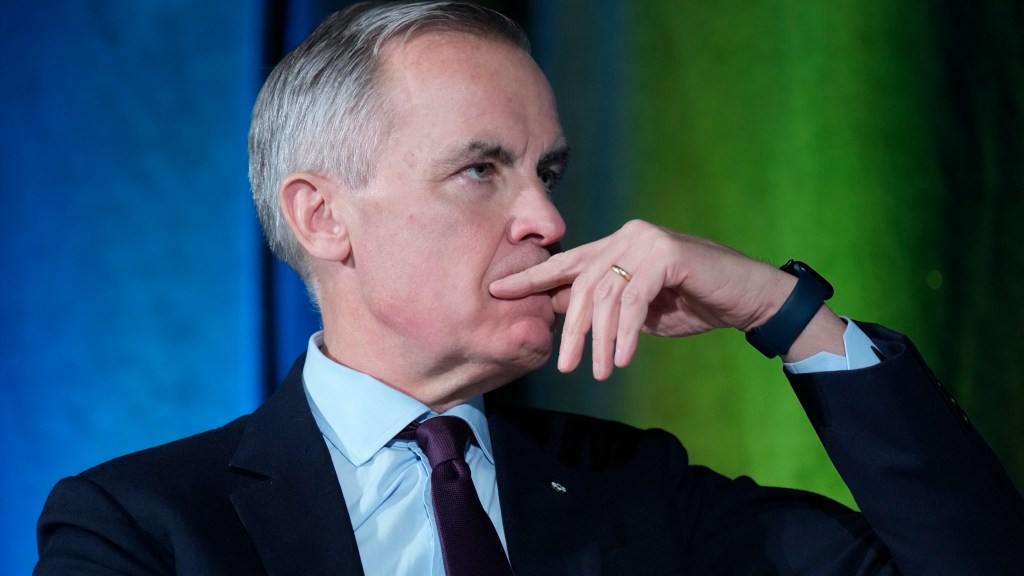Pizza Pilgrims: How Two Brothers’ Naples Visit Sparked a Multi-Million Pound Business
Back in 2011, Thom and James Elliot were contemplating leaving their careers in advertising and television. Having grown up in a family that owned pubs, the idea of opening their own was enticing, but the £250,000 investment needed was a significant barrier.
Thom even considered medical school despite his fear of blood. However, it was James, then standing in a car park in Peckham, South London, who had an epiphany. Observing the queue for Yianni Papoutsis’s burger van, an old ambulance, he realised that street food could be done on a tight budget.
Papoutsis, who co-founded the MEATliquor restaurant chain with Scott Collins, was part of a wave of street food entrepreneurs capitalizing on the financial crisis era’s trend of affordable yet high-quality food in London.
“I believe 2009 to 2012 for food in London was akin to 1963 to 1969 in music,” said Thom, 40. “Many remarkable businesses that grew exponentially started then.” This golden era saw the birth of ventures like Dishoom, Caravan, and Flat Iron.
“Suddenly, the most exciting food experience was enjoying a [steamed] bao bun on the street, not in a restaurant with white tablecloths,” James added.
What began as a vague idea ultimately evolved into Pizza Pilgrims, a chain now on the verge of opening its 25th restaurant. By 2023, the brand reported revenues of £28.7 million and pre-tax profits of £714,000. Revenue forecasts predict a 20% increase by June 2024.
Initially, the vision was simple: A Piaggio Ape tuk-tuk with a pizza oven for hire at weddings and events. To refine their skills, James proposed a journey through Italy in the Ape, which his TV production company approved. In summer 2011, with a crew in tow, they arrived in Sicily.
A pitstop in Naples introduced them to Neapolitan pizza, solidifying their business model.

The adventure became a Food Network documentary, but reality set in. Thom resumed work in advertising while James continued the venture—from events to a Berwick Street market stall near Thom’s office, who joined during lunch rushes.
“From 2012, our market trader roots saw us braving a full winter on Berwick Street,” James shared. Earnings were minimal, at £100 a week, pushing them towards a permanent restaurant.
Through some early Instagram networking, they connected with restaurateur Russell Norman, leading to a spot on Dean Street. They raised £250,000 from 15 investors, used £150,000 for the lease, £70,000 on fit-out, with £30,000 for additional costs.
“It was a shoestring budget,” said Thom. The brothers did the painting and repurposed old tables. With no air-conditioning, opening in August 2013 under sweltering heat, they earned two-star reviews from London newspapers.
Persistence paid off, and a year later, West End landlord Shaftesbury Capital approached them for a larger site in Kingly Court. Initially hesitant, investor advice led them to their busiest outlet.
“That’s when it felt like a real business,” remarked James. Profits from two restaurants funded their third in Exmouth Market. “We dislike debt,” Thom added, attributing their frugality to their street food beginnings.
James manages fit-outs, sourcing second-hand furniture and decorative items from Naples, where 80% of their chefs hail from.
A loan backed their fifth site, and in 2017, they sold a stake to a private wealth firm, their largest investor. In 2021, an 8% stake went to private equity firm Imbiba for £3.5 million. Despite nearing minority ownership, they retain decisive voting control.
From London to Leeds, Nottingham, Brighton, Cambridge, and Cardiff, they’ve expanded (though Oxford’s stint was short-lived). The Elliots credit their success to Neapolitan ingredients and staff loyalty, boasting long tenures among employees.
Promotion from within is key, along with experienced hires like Gavin Smith, now managing director, and decade-long finance director Sophie Gilchriest.
“We’re conscious about overstepping as founders,” James concluded. “We step aside for experts when needed.”
High Five

My hero … Thom: “[Sir] John Timpson. We spent a day with him five years ago, and I admire his team-centric business ethos.” James: “Not a business hero, but Billy Connolly. His humor, essential in business, is inspiring.”
Best decision … James: “Starting Pizza Pilgrims with Thom. Our diverse skills complement each other perfectly.”
Worst decision … James: “Buying six fridges from ‘Skip’ for Dean Street. They failed within a day. Always invest in reliable appliances.”
Funniest moment … Thom: “At an ’80s festival, we named pizzas after pop stars. Then Chesney Hawkes himself ordered a ‘Cheese-ney Hawkes’—a memorable encounter.”
Best business tip … Thom: “Be prepared to take risks. During tough initial days, trading pizzas sustained us. I also couldn’t have done it without my supportive wife.”




Post Comment